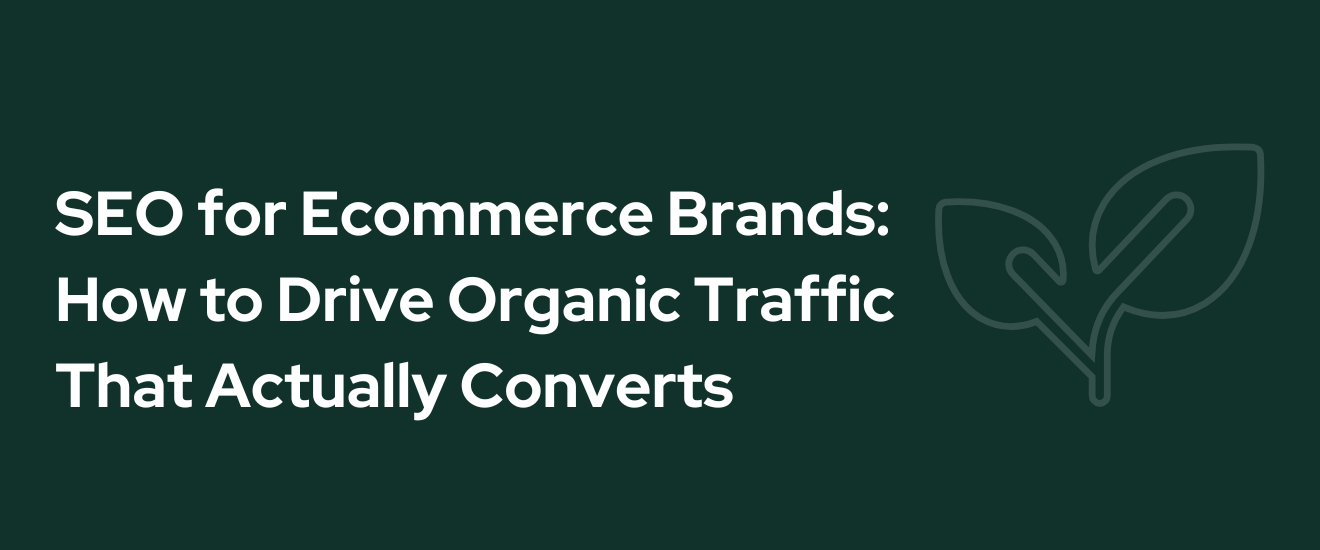SEO for Ecommerce Brands: How to Drive Organic Traffic That Actually Converts
Practical SEO tips tailored to ecommerce brands with a mission
Search engine optimization isn’t just for bloggers. For ecommerce brands, it’s one of the most cost-effective ways to attract new customers without relying on paid ads.
But ranking isn’t enough. You need to drive traffic that actually converts.
Here’s how to build a smart SEO strategy tailored to product-based brands.
1. Start With High-Intent Keywords
Avoid targeting broad, competitive keywords like "sustainable fashion" or "eco-friendly products."
Instead, go after buyer-intent terms like:
- "Plastic-free shampoo bars for curly hair"
- "Zero waste gifts under $50"
- "Tree planting gift card"
Use tools like Ahrefs, SEMrush, or Ubersuggest to find long-tail keywords with good volume and low competition.
2. Optimize Product and Collection Pages
Each product page should target a specific keyword that matches what your customer would search for. For example:
Product title: Organic Cotton Tote Bag
H1: Organic Cotton Tote Bag – Plastic-Free and Ethically Made
Meta description: Shop reusable tote bags made from 100% GOTS-certified cotton. Each purchase removes 1 lb of ocean plastic.
Also include:
- Schema markup for product details
- Alt text on images
- Customer reviews with relevant keywords
3. Create Evergreen Content That Solves Problems
Blogs still work—especially when they answer common questions or showcase product use cases.
Ideas include:
- "How to Build a Plastic-Free Morning Routine"
- "Best Eco-Friendly Gifts for Minimalists"
- "What Happens to the Plastic We Remove From the Ocean?"
Each post should:
- Target one long-tail keyword
- Link to 1–2 relevant products
- Include a CTA to shop or learn more
4. Build Backlinks Through Partnerships and PR
Links from other reputable websites improve your domain authority and search rankings.
Get backlinks by:
- Collaborating with bloggers or influencers
- Contributing guest posts to sustainable living websites
- Submitting your brand to impact-focused directories
Also consider pitching your brand story to digital publications and asking for a link to your impact page.
5. Track the Right Metrics
Focus on metrics that tie directly to business results:
- Organic traffic to product pages
- Click-through rate from Google
- Conversion rate of search visitors
- Growth in keyword rankings over time
Use Google Search Console and GA4 to track performance. Regularly review your top-performing queries and double down on what’s working.












